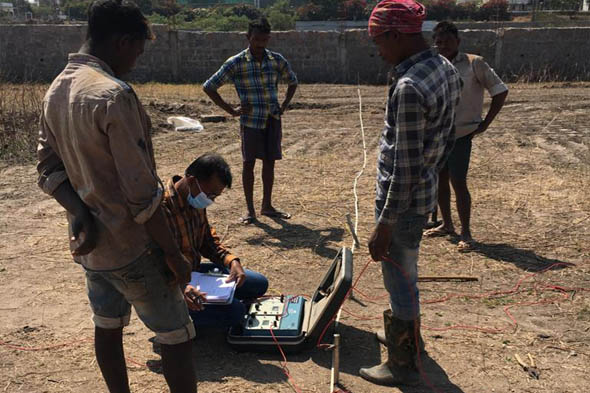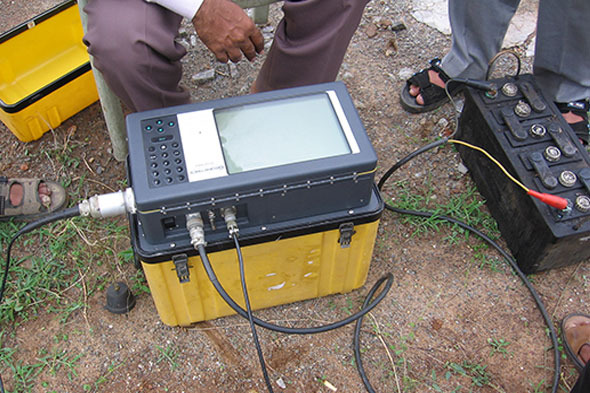Geo-Physical Survey

1. Soil Resistivity Test
Soil Resistivity is a measure of how much the soil resists the flow of electricity. It is a critical factor in design of systems that relay on passing current through the earth’s surface. An understanding of the soil resistivity and how it varies with depth in the soil is necessary to design the grounding system in an electrical substation or of lightning conductors. It is needed for design of grounding (earthing) electrodes for high voltage direct current transmission system.
In Geo Explorations the test is carried out by Wenner Method, as per IS Code 3043-1987.

2. Seismic Refraction Test
Seismic refraction test are performed using a seismograph and/or geophone’s in an array and an energy source. The seismic refraction method utilizes the refraction of seismic waves on geologic layers and rock/soil units in order to characterize the subsurface geologic conditions and geologic structure.
The methods depend on the fact that seismic waves have differing velocities in different types of soil /rock in addition, the waves are refracted when they cross the boundary between different types of soil or rock. The methods enable the general soil types and the approximate depth to strata boundaries, or to bedrock, to be determined.
